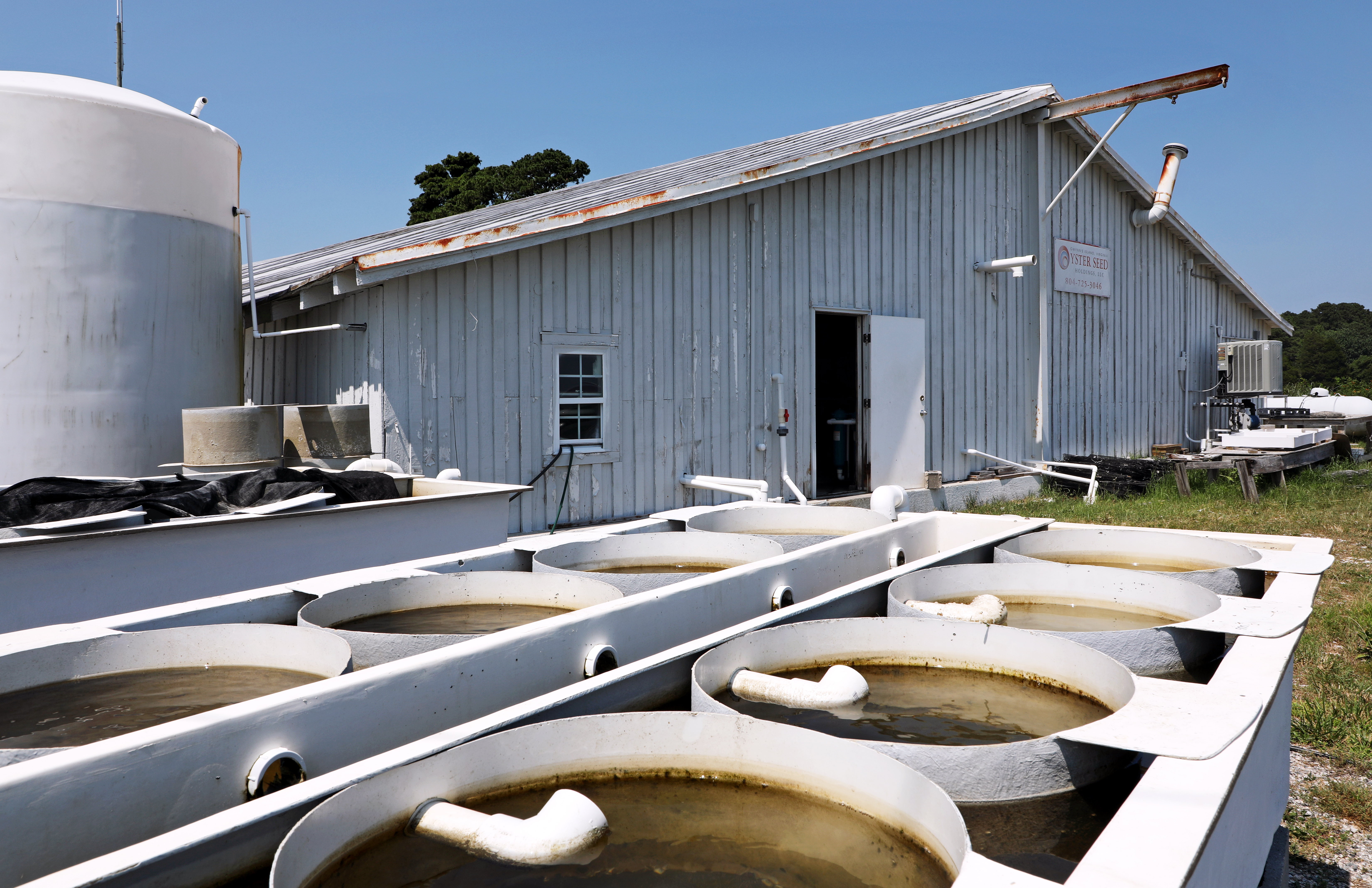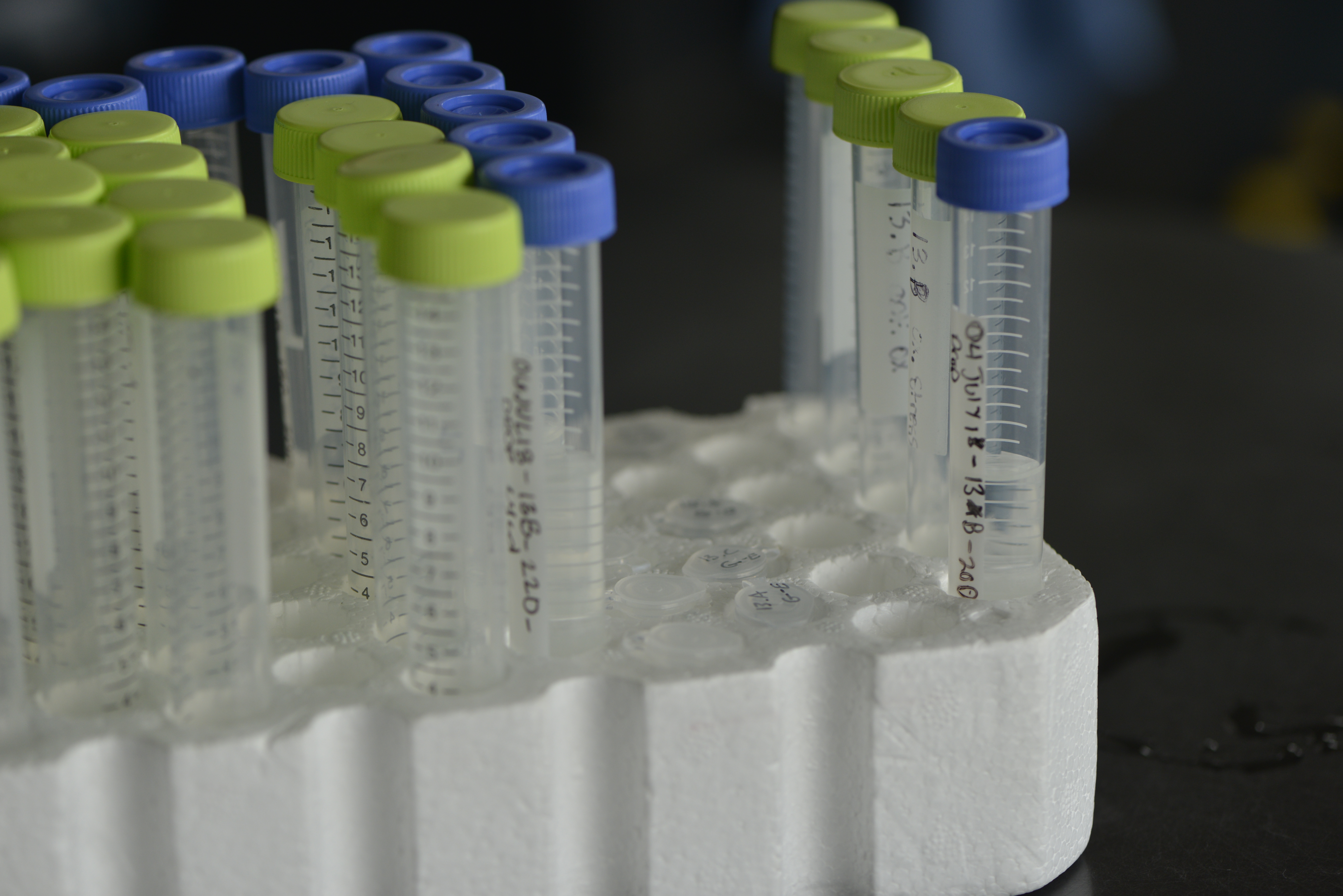For oysters, sometimes stress can kill, especially as larvae transition to adulthood. Potentially, reducing carryover effects might help more oysters survive the stress.
As Jan McDowell, co-leader of the research project, puts it: "If you have a match between the conditions you’re reared in as a larva and the conditions you’re reared in during the grow-out phase as an adult, do you perform better? Do you grow faster? Also, do you experience less mortality?"
GENETIC DIVERSITY
An oyster's genetics dictate its ability to respond to change, and every oyster's genes are a little different.
Part of the research process involves studying the genetic diversity of the oysters at different life stages, especially when the larvae transition to adulthood and after the oysters have been growing out in the Bay for a while. This will allow the researchers to see if the water conditions cause the oyster populations to lose genetic diversity as some oysters die off.


